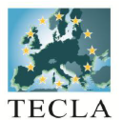In a speech to the Bavarian Parliament Whetstone said Google has taken big strides to encrypt data flowing into and between its cloud services, and defended its size as essential in allowing the firm to keep its services secure.
“We’re under a lot of scrutiny in Europe because of our size. But it is precisely our size that enables us to invest a lot in security, which helps our users as well as the wider web,” Whetstone said.
European legislators have repeatedly called on the European Commission to redouble its ongoing investigation into the firm for anti-competitive behaviour; as recently as November last year MEPs more or less signaled its desire, in the form of a non-binding resolution, to see the company split.
That resolution called on the European Commission to consider the move on the basis of Google’s role in ‘commercialising secondary exploitation of obtained information’, and the company’s size.
But Whetstone defended Google’ advertising policy and invoked its redistributive effects on the quality of its services more broadly.
“Of course it is true that most of our services today are supported by advertising. But we view that as a positive because ads enable us to offer our products for free to everyone. Without ads, the poorest would not have access to the same search results, the same maps, the same translation tools, the same email service as everyone here today,” Whetstone said.
“Google does not sell your personal information. Let me repeat that. Google does not sell your personal information. Nor do we share it without your permission except in very limited circumstances, like government requests for data.”
“I want to start by making clear Google hasn’t always got this right. It’s not just about the errors we have made–with products like Buzz or the mistaken collection of WiFi data–but about our attitude too. These have been lessons learned the hard way. But as our swift implementation of the Right to be Forgotten has shown, they are indeed lessons we have learned,” she added.
On encryption and surveillance Whetstone reaffirmed the US government does not have backdoor access to its services.
She also said Google’s progressive policy on encryption “requires governments to go through the proper legal channels” for customer data, and hit out at how governments secure data from one another and private firms across borders for law enforcement purposes including surveillance.
“The MLAT process is too slow, too complicated and in need of reform,” she said. “Europe is leading the way here. We now need the US to follow suit.”
“However, even with reform, some intergovernmental oversight will always be necessary. If government X wants information on its own citizens, that’s one thing. But when it’s asking for information about country Y’s citizens, surely that country should have a say in the decision as well. This takes time.”
Her comments came the same week US lawmakers introduced two bipartisan bills, The Law Enforcement Access to Data Stored Abroad Act, or LEADS, and a series of amendments to the Electronic Communications Privacy Act that seek to limit the reach of US courts over data stored in cloud services located outside the US.
The move was welcomed by a broad coalition of technology and telecoms firms.
To read more about the topic: businesscloudnews















